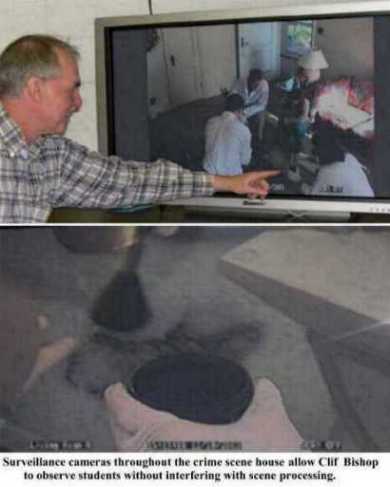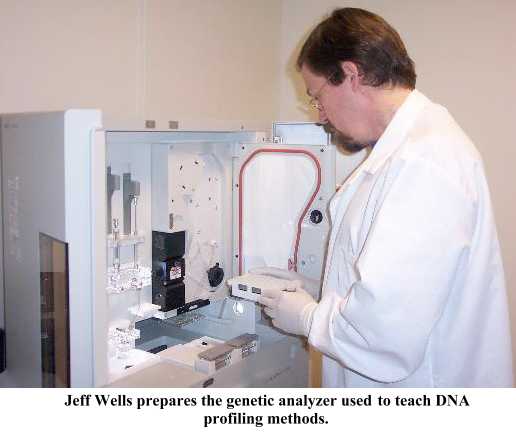The forensic science training and research program at West Virginia University
May 17, 2004
Submitted by
Jeffrey D. Wells, Associate Professor of Forensic Biology.
Forensic science is a relatively new subject on the WVU campus.
There have been some growing pains, however both academic training
and research activities are increasing rapidly. In 2001 we graduated
our first three students with a B.S. in the subject. The undergraduate
program has since split into the Forensic & Investigative Science (FIS)
major offered within the School of Arts and Sciences and the Forensic
Biometrics major offered by the School of Engineering. WVU played a
leading role in the recent US Department of Justice sponsored effort
to establish forensic science education guidelines - see
http://www.aafs.org/pdf/TWGEDFinalDraft.pdf
The university is also a partner in the Forensic Resource Network, through which National Institute of
Justice funds are used to improve the quality of forensic science research and practice in this country.
A prospective FIS student enrolls for two years as a pre-major
(basically a typical science curriculum plus a forensic science survey course)
then applies to enter the program. Each student chooses the latent examiner,
chemistry, or biology emphasis. Recent faculty hires in forensic chemistry and
biology have led to new advanced courses in these subjects. WVU staff members
have extensive practical experience with methods of death investigation such as
skeletal analysis and the "police sciences" such as blood spatter analysis.
Current and retired government
crime lab employees also regularly serve as adjunct criminalistics instructors.

Most FIS courses takes place within shared university classroom and teaching laboratories,
however two houses on campus are used exclusively for mock crime scenes. A dedicated garage
facility for teaching vehicle investigation is scheduled for completion in time for spring
semester 2005. Efforts are underway to increase forensic science instructional capacity by
hiring additional staff, purchasing
new analytical equipment, and renovating space for FIS labs and classrooms.

The short-term goal is to be able to admit up to 100 undergraduate students
each year while maintaining a program as rigorous and well supported as are the
other natural sciences. Graduate-level training in the form of a forensic science
certificate that may be earned in association
with a Ph.D. or M.S. in a separate primary discipline will begin fall of 2004.
WVU is in Morgantown http://www.morgantown.com/
, a city of approximately
27,000 residents not counting WVU students, located 70 miles south of Pittsburgh.
Living conditions are those of a typical
college town, and the area offers extensive opportunities for outdoor recreation.
For more information about this program
please contact:
Dr. Clifton Bishop at
cbishop@mail.wvu.edu
or
Lori Britton at
lori.britton@mail.wvu.edu
Website: http://www.wvu.edu/~forensic/

